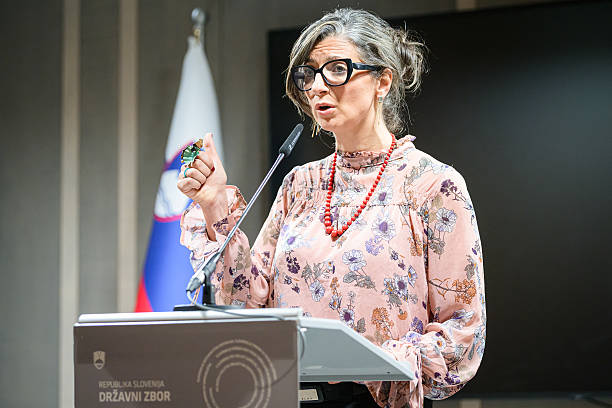By: Sahra Mohamed
Advocating for yourself in a medical setting has become a form of protection. Whether it’s a routine checkup or a specialist consultation, patients must take an active role in their care to ensure they’re seen, heard, and treated appropriately. For people of color, especially Black, Indigenous, and Latino patients, self-advocacy can be more than a precaution; it can be a critical lifeline in systems that have overlooked, dismissed and underestimated their needs. In 2003, the Institute of Medicine released a report titled Unequal Treatment, revealing that racial and ethnic minorities consistently receive lower-quality healthcare than white patients, even when factors like insurance status, income, age, and overall health are comparable. Two decades later, those disparities still exist, and the report’s findings remain relevant. In recent years, Dr. Joel Bervell, a Peabody and Webby award–winning medical educator and social media “medical mythbuster” has helped raise awareness and bring important information to the public. He regularly debunks harmful myths about race in medicine, educates patients about hidden systemic biases, and empowers viewers with self-advocacy tools through his social media platforms. His content has earned recognition from institutions such as the White House, the American Medical Association, and major media outlets, highlighting how crucial it is for patients to question and demand clarity when doctors minimize symptoms and overlook their risks.
A 2016 study published in the Proceedings of the National Academy of Sciences (PNAS) revealed that some medical professionals still believe harmful myths, including the false idea that Black patients have thicker skin and are less sensitive to pain. These beliefs, based on centuries-old racist pseudoscience, continue to influence how patients are treated when it comes to pain tolerance. As a result, Black patients are less likely to be prescribed pain medication, even when reporting the same levels of pain as white patients. They are more likely to have their symptoms dismissed, their diagnoses delayed, and their treatment options limited. In obstetrics, Black women remain three to four times more likely to die from pregnancy‑related complications than white women. As we reported in our previous Special Sense Magazine feature, We’re Still Not Being Heard: The Black Maternal Health Crisis in America, systemic neglect and medical bias continue to endanger lives. In cardiology, a 2022 report in JAMA Cardiology found Black patients were 25% less likely than white patients to be referred for cardiac rehabilitation after heart failure. In oncology, a 2024 JAMA Network study revealed that Black adolescents and young adults had a 40% higher odds of late‑stage cancer diagnosis, while additional research shows Black cancer patients are less likely to receive treatment such as surgery, chemotherapy, and radiation, putting them at risk.
Medical acts of dismissal can escalate when patients ask questions or request alternative options. Some physicians respond by pressuring patients to try strong medications without fully explaining the side effects, risks, or other treatments, even when those drugs carry serious warnings like an FDA black box label. Instead of offering informed care, some patients are met with vague reassurances like, “Let’s just try it and see what happens.” When patients, especially people of color ask for more information or express concern, they risk being labeled “difficult,” or even accused of being emotionally unstable. A patient who requests more testing, refuses a suggested medication, or becomes emotional after being dismissed, might be told to seek psychiatric help, rather than being met with compassion. It becomes easier for providers to shift blame onto the patient instead of reflecting on their own communication or biases. For many people of color, this kind of treatment can trigger past trauma, even when their instincts turn out to be correct. Serious harm can occur when doctors refuse to run tests or listen closely. In many cases, diagnoses are delayed or missed entirely. Due to medical negligence, some patients discover allergies, chronic illnesses, or autoimmune conditions only after months, or years of being told their symptoms were “all in their head.” The burden of proof falls on the patient, who must advocate persistently just to be taken seriously. That burden is even heavier for those navigating a medical system structured around systemic inequality.
So how can patients protect themselves in a system that’s supposed to protect them? It starts with preparation. Keep a record of your symptoms, when they appear, what might trigger them, and how they’ve progressed. Bring notes to your appointments so you don’t forget key details under pressure. Ask direct questions: What could this be? What are the risks if we do or don’t treat it? What are my options? If a provider refuses a test or treatment, ask that their explanation and decision be added to your medical record. Seeking a second opinion isn’t rude, it’s responsible. If something doesn’t feel right, trust your instincts. Use your patient portal to ask follow-up questions, double-check results, and request copies of your medical records. If possible, bring someone you trust to appointments to help take notes and advocate alongside you. Still, the responsibility for equitable care shouldn’t fall on patients. Self-advocacy is a form of protection, not a solution. Medical institutions must do more to address bias and train providers to offer respectful, informed care, so that patients, especially those from marginalized communities, aren’t left fighting to be heard. Groups like The Black Health Alliance in Canada, The National Birth Equity Collaborative, and The Center for Health Equity at the CDC advocate for systemic change while offering support and resources for patients. Everyone deserves a healthcare experience that is compassionate, evidence-based, and fair. No one should have to fight to be heard while in pain. But until the healthcare system evolves to meet the needs of all patients equally, speaking up remains a critical tool for people of color. Advocacy is about protecting your health, your dignity, and your right to be taken seriously.











